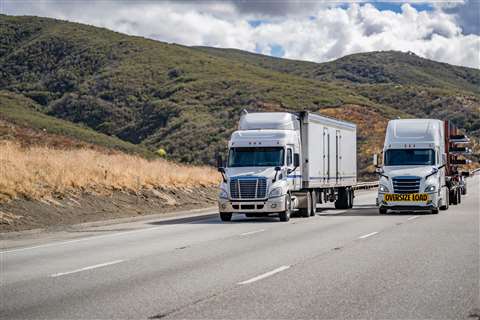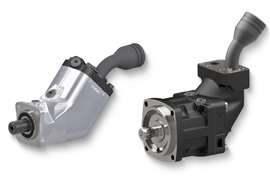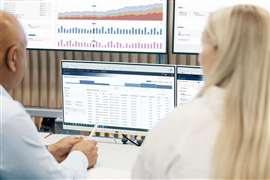Street Smarts: Is H2 trucking’s miracle fuel?
04 May 2023
 Hydrogen is an emerging fuel alternative for the freight transportation industry. (Photo: Adobe Stock Photo)
Hydrogen is an emerging fuel alternative for the freight transportation industry. (Photo: Adobe Stock Photo)
To be sure, there’s a lot of hydrogen hype in trucking today. The fuel holds great promise as a green godsend for a zero-emissions trucking future. But fleets can’t invest in hype. They need data. Which is why the North American Council for Freight Efficiency (NACFE) decided to take another look at hydrogen’s current state of play in trucking, as well as its long-term potential.
NACFE has emerged as one of the leading technology analyst organizations in trucking today. Its mission is simple, look at new and emerging green energy technology to give fleets real, experience-based data on their viability and return on investment in real-world fleet operations. (Full disclosure: The author is a NACFE analyst who tracks autonomous truck technology for the organization.)
This is NACFE’s second look at hydrogen as an emerging truck fuel. Its first report was issued in 2020. And Mike Roeth, executive director for NACFE, admits that while that report got some things right, it missed some important things, too. “Most notably, we didn’t predict the rise of hydrogen as a fuel in diesel-style, internal combustion engines (ICEs),” he said. “Although, to be fair, that aspect of hydrogen as a truck fuel only emerged into the mainstream just last year.”
Great potential
The report highlights the fact that hydrogen has great potential as a truck fuel, Roeth added. But, he cautioned, it will not be a solution for every trucking duty cycle. “Rather, it is part of the spectrum green fuel for duty cycles that diesel does today,” Roeth said. “And we believe that means that hydrogen will likely be primary future fuel for heavy duty, long-range, freight-carrying vehicles.”
The report, titled “Hydrogen Trucks: Long Haul’s Future?” focuses on using hydrogen-based powertrains for heavy-duty Class 8 long-haul freight routes pulling van trailers. Rick Mihelic, the report’s author and NAFCE’s director of emerging technologies, said NACFE analysts found that hydrogen is a complex topic with its use in freight transportation still in its infancy.
Mihelic believes optimizing specs will be critical for fleets looking to use hydrogen propulsion for trucks, whether in a fuel cell arrangement or in an otherwise conventional ICE. “One of the appealing things about hydrogen ICEs is that they primarily look a lot like the engines fleets currently buy,” Mihelic said. “So, it may be less of a leap of imagination for fleets to move to hydrogen ICEs before moving on to hydrogen fuel cell trucks. Although, there are certain duty applications where we believe fleets will want hydrogen ICEs – offroad vehicles and emergency vehicles, for example, are particularly well-suited to hydrogen ICEs.”
 Jack Roberts is a Tuscaloosa, Ala.-based independent journalist and licensed commercial driver with more than 20 years’ experience covering the North American and global trucking industries.
Jack Roberts is a Tuscaloosa, Ala.-based independent journalist and licensed commercial driver with more than 20 years’ experience covering the North American and global trucking industries.
Major themes
According to Mihelic, the four major themes in the report are:
Hydrogen and battery electric are not an “either/or” but an “and” for the zero-emission freight future.
Hydrogen fuel cell tractors are the only zero-emission solution for many duty cycles for heavy-duty tractors.
Alternative fuels like RNG, renewable diesel, and hydrogen used in internal combustion engines will be required to support the transition in the next two decades to help make progress toward zero-emission goals, while in parallel ramping up the hydrogen and battery electric.
Critical findings
Building on those key points, Roeth called out a number of findings in the report that he said are critical for fleets considering a conversion to hydrogen to understand. These include:
- The cost of hydrogen production, transportation, storage and dispensing will not be cost competitive with diesel without significant assistance from tax credits and other subsidy mechanisms.
- Managing the actual retail cost of hydrogen is perhaps more important than continuing discussion of reducing the production cost at the hydrogen plant.
- Hydrogen is closely tied to electricity. You can’t have hydrogen without significant amounts of electricity.
- Purpose-built hydrogen trucks optimized for specific duty cycles may not be valued well in the secondary market, leading to first owners keeping the vehicle until it is salvaged.
- Hydrogen used for creating alternative fuels like renewable diesel will reduce net emissions but at the cost of delaying adoption of zero-emission alternatives.
“Hydrogen and battery electric are not an ‘either/or’ but an ‘and’ for the zero-emission freight future,” Roeth added. “Battery electric vehicles will inherently be the most economical and efficient choice for shorter distance zero-emission duty cycles, and hydrogen will be the only viable economic choice for long-haul zero-emission duty cycles. Ultimately fleets in the market will make decisions on which technology succeeds for which duty cycles.”
POWER SOURCING GUIDE
The trusted reference and buyer’s guide for 83 years
The original “desktop search engine,” guiding nearly 10,000 users in more than 90 countries it is the primary reference for specifications and details on all the components that go into engine systems.
Visit Now
STAY CONNECTED




Receive the information you need when you need it through our world-leading magazines, newsletters and daily briefings.
CONNECT WITH THE TEAM












